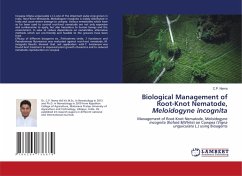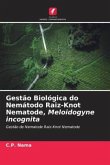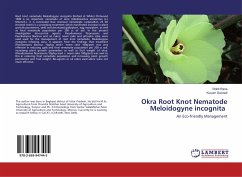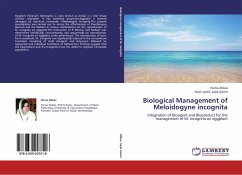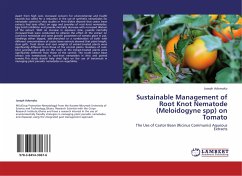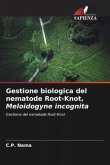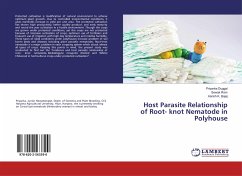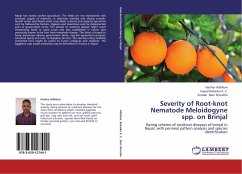Cowpea (Vigna unguiculata L.) is one of the important pulse crop grown in India. Root-Knot Nematode, Meloidogyne incognita is widely distributed in India and cause severe damage to cowpea. Various nematicides which have so far been used to control root-knot nematode are not only expensive and cumbersome to apply, but also hazardous to human beings and the environment. In view to reduce dependence on nematicides, alternative methods which are eco-friendly and feasible to the growers have been tried. Efficacy of different bioagents viz., Trichoderma viride, T. harzianum and Pseudomonas fluorescens was evaluated against root-knot nematode, M. incognita. Results showed that soil application with T. harzianum was found best treatment to improved plant growth characters and to reduced nematode reproduction on cowpea.
Bitte wählen Sie Ihr Anliegen aus.
Rechnungen
Retourenschein anfordern
Bestellstatus
Storno

